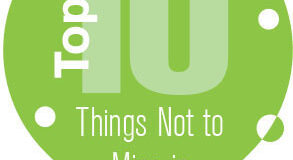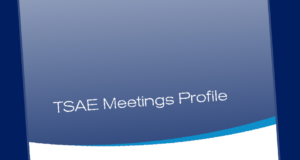As the topic of sexual harassment and assault continues to dominate the headlines, and more than a year since the #MeToo movement galvanized millions of women globally, the wave of conversation and activism has not dissipated but has instead gained momentum. To take a closer look at this issue and understand how it relates to the meetings industry, we talked with speaker, writer and meetings industry consultant Courtney Stanley, who is the co-founder of #MeetingsToo, a social movement aimed at empowering event professionals to prevent sexual harassment within the meetings and hospitality industry. Stanley is the recipient of the Association for Women in Events (AWE) Disruptor Award, the MPI Chairman’s Award and the MPI RISE Award.

Q: You’ve been a prominent voice in the industry, sharing your #MeetingsToo message at various MPI educational sessions and events. Why is the subject of sexual harassment in the meetings industry important and what spurred you to add your voice to the conversation?
A: The first step toward creating change is igniting the conversation. We have an opportunity and a responsibility to ensure that every single person, whether that be a planner, supplier, partner, attendee or employee, feels safe and respected in every environment that we create and manage. It is critical that we engage in the #MeToo conversation, quite simply, because sexual harassment is a huge issue in our community. What spurred me, personally, to step up and lead the #MeetingsToo movement stretches beyond my own experience as a victim of sexual harassment. Quite frankly, it is the raw and unjust stories of my peers that fuel and motivate me.
Q: You’ve called meetings, conferences and events “the perfect storm,” citing the confluence of late evening networking events, free-flowing alcohol, a vacation mindset that people sometimes adopt when traveling away from home, and nearby hotel rooms. As a meetings consultant, what questions or plans are you seeing from your clients regarding ways to avoid “storm damage”?
A: The very first piece of advice I lend my clients is to formulate a strategy. Just as one would prepare for an event with a contingency plan, meeting planners should be thoughtfully weaving sexual harassment prevention action items into their safety and security policies to leverage both before and during an event. If you don’t know where to start, hiring a consultant is a great way to get things moving in the right direction.
Q: Where does the meetings industry go from here? In other words, what changes could we potentially start seeing in the way we plan and attend events?
A: I believe the betterment of our community’s future relies on two things: organizational integrity and unapologetic accountability. Not enough is being done to protect the members of our community. Moving forward, my expectation is that those in leadership adopt a bold approach in communicating their position on sexual harassment prevention in our community, both internally and externally. In regard to the planning process, every single meeting organizer should have a code of conduct in place that outlines attendee behavior expectations.
Planners should also be training their teams on how to handle reports of misconduct and formulate a communications plan to ensure that all attendees understand the incident reporting system. These are just a couple of many actions that meeting planners can take. I do believe that if these tactics are executed well, the event experience will improve in ways that to most will go unnoticed, but to those who have encountered harassment before, the intentional act of creating a safer space will be greatly appreciated.
Q: Why should meeting planners and suppliers care about harassment at their events or at their property, and at what cost do the aforementioned changes come to the industry?
A: This is a really easy question to answer: Because it’s the right thing to do. There is no drawback to ensuring that all attendees and guests feel safe while attending your event or staying on-site at your property. Assuring that all people are respected is not only a basic moral issue; working to prevent harassment is critical for companies to maintain their brand integrity and, furthermore, avoid lawsuits.
Christina Cusack, CMP, is a meeting planner with Stanford Conferences. This Q&A originally ran in Meeting Professionals International Northern California Chapter’s Perspective magazine.
 Association Leadership TSAE: Connecting association professionals to peers, resources, information and inspiration.
Association Leadership TSAE: Connecting association professionals to peers, resources, information and inspiration.



